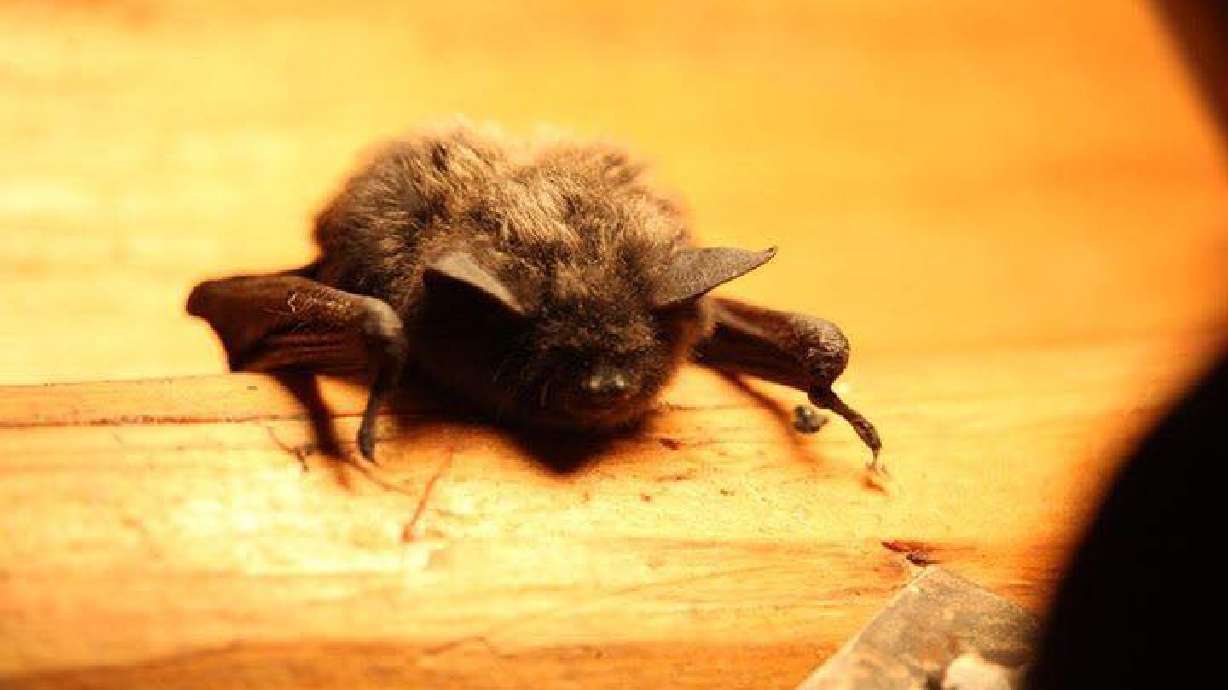Estimated read time: 3-4 minutes
- Weber and Morgan counties warn residents after rabid bat found in Morgan County.
- Health officials urge updating pet vaccinations and avoiding contact with wild animals.
- Rabies spreads through saliva; Utah's most common carrier is bats, health department advises.
OGDEN — Health officials in Weber and Morgan counties are asking residents to make sure their pets' vaccinations are up to date and to avoid touching bats or other wild animals after a bat found in Morgan County tested positive for rabies.
"Bats play an important role in our ecosystem and the majority of the bats in our population are healthy and tend to keep to themselves," said Amy Carter, communicable disease nurse with the Weber-Morgan Health Department. "However, if you see one in the daylight, or if it's in a place where you or your pet can pick it up, there's a good chance it is ill."
This week's positive test is the Beehive State's first report of a rabies-positive bat in 2025. Carter added that as the weather warms, the chances for coming across a rabid animal increases.
Rabies is a virus that impacts the brain and nervous system of infected animals and can be fatal if not treated properly and promptly — which includes pre-exposure vaccination for pets and post-exposure vaccinations for individuals.
According to the World Health Organization, rabies spreads to people and animals via saliva, usually through bites, scratches or direct contact with mucosa (eyes, mouth, or open wounds). Feces, blood and urine do not transmit rabies.
Once clinical symptoms appear, rabies is virtually 100% fatal.
In Utah, bats are the most common carriers of the rabies virus. Skunks, raccoons, foxes and unvaccinated cats and dogs can also carry the disease, but Utah law requires cats and dogs to be vaccinated for rabies.
The Weber-Morgan Health Department provided the following tips when it comes to rabies prevention:
- Keep your pet's vaccinations up to date. Check the pet's vaccination status with your veterinarian and put your records where you can access them quickly.
- Stay away from wild animals. Call your local animal control for assistance if it appears sick, injured or is acting strangely.
- Act quickly if you are bitten or scratched by a bat or other wild animal. Immediately wash the wound with soap and water and see your health care provider. If possible, safely contain the bat and contact the Utah Division of Wildlife Services so it can be tested for rabies.
- Report any interactions with a bat found in a sleeping area. Any exposure to a bat in a sleeping area is considered an exposure due to their ability to spread the virus through extremely small bites or scratches.
"Vaccination is important because it is how we prevent rabies in our cats and dogs. It saves time and heartache if your pet is involved in a biting incident or comes in contact with a rabid bat or other animal," Carter said.
In Oct. 2024, a bat in Pioneer Park tested positive for rabies, and Salt Lake County health officials said it was handled "potentially for an extended period," likely by multiple people.
More information about bats, animals and rabies can be found at the Utah Department of Health and Human Services website.









